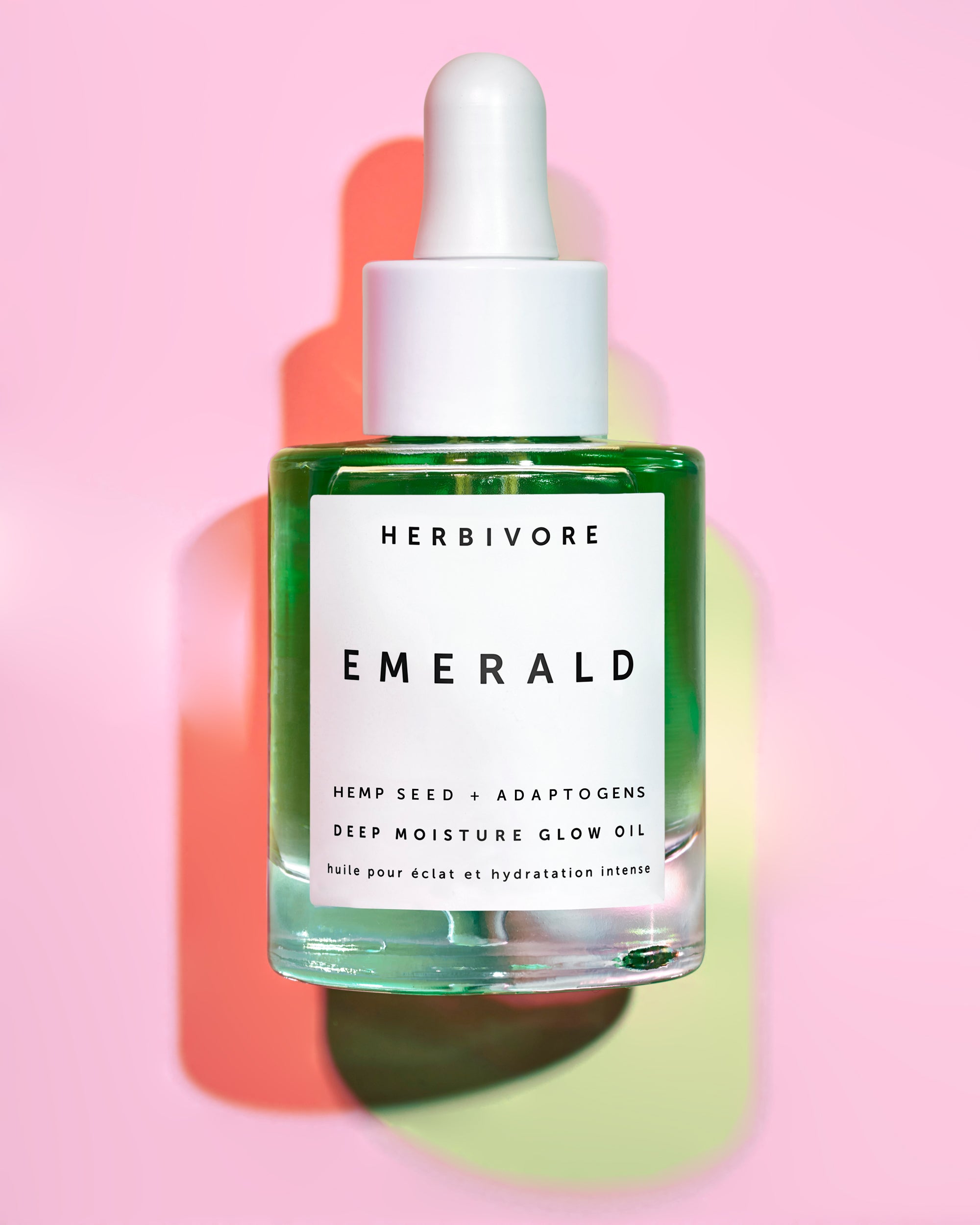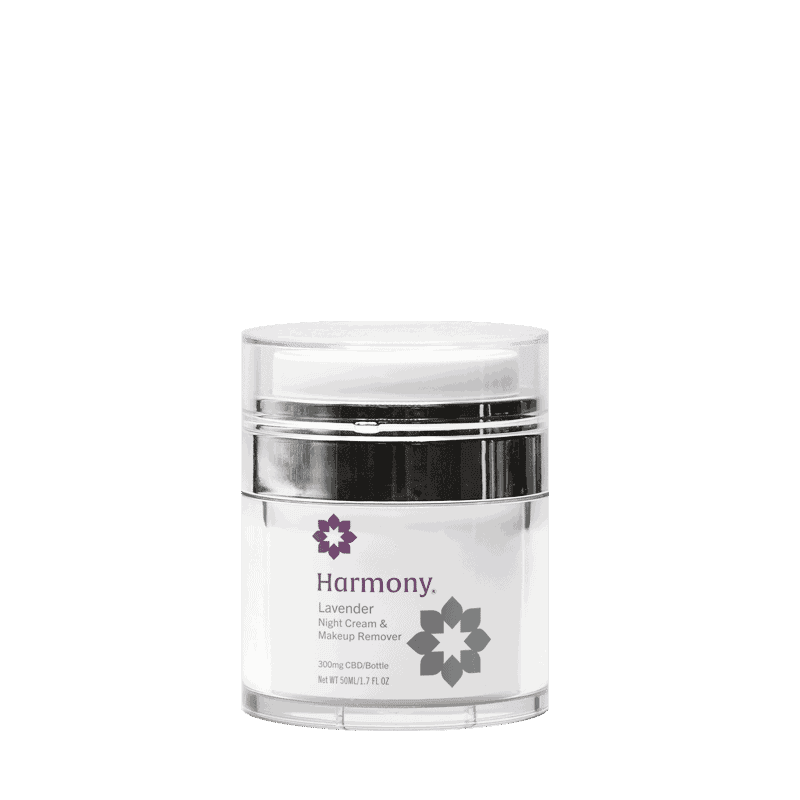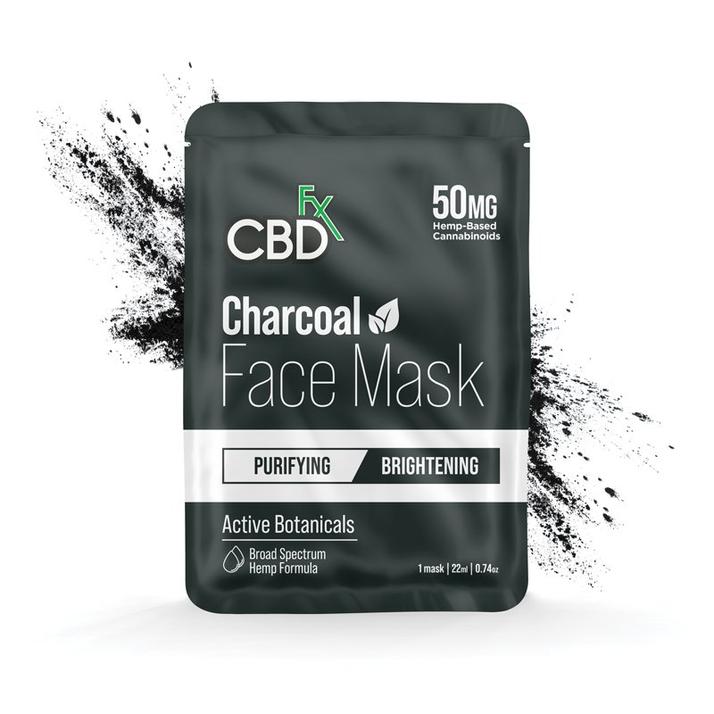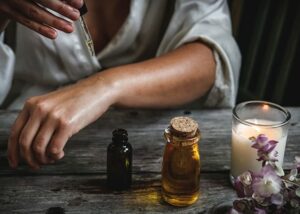Best CBD Skin Care
Are you looking for natural skincare alternatives to help relieve symptoms such as irritated, itchy, or rashy skin? Read on to find out how cannabidiol (CBD) oil and other CBD products may help promote wellness and relieve skin problems.
CBD for Skin Care 2025
- Herbivore Emerald Deep Moisture Glow Oil Best CBD Moisturizer
- Palmetto Harmony Lavender Night Cream & Make-Up Remover Most Moisturizing Night Cream
- CBDfx CBD Charcoal Face Mask Most Purifying Face Mask
Compare the best CBD for Skin Care in 2022
CBD for Skin Care
1. Herbivore Emerald Deep Moisture Glow Oil
cbdc overall score
3.4
CBDC Evaluation Table/Score
| Pros | Cons |
|---|---|
|
Fragrance free |
No return policy |
|
Contains antioxidants |
Overview
Emerald Deep Moisture Glow Oil provides skin with rich moisture and a glow in a quick-absorbing formula.
2. Palmetto Harmony Lavender Night Cream & Make-Up Remover
cbdc overall score
3.6
CBDC Evaluation Table/Score
| Pros | Cons |
|---|---|
|
Free from pesticides, microbiological contaminants, heavy metals, and GMO. |
No allergens specified on site. |
|
Third party lab-tested. Test result is currently available on site. |
|
|
Exclusive perks, savings, and rewards upon joining Rewards Program. |
Overview
Lavender night cream perfect for removing makeup and overnight moisturizing. Each bottle serves 50ml with a total of 300mg Full Spectrum CBD. Third party lab-tested and result is currently available on site.
3. CBDfx CBD Charcoal Face Mask
cbdc overall score
3.6
CBDC Evaluation Table/Score
| Pros | Cons |
|---|---|
|
Solvent Free, pesticide-free, and non-GMO |
No allergens specified on site. |
|
Third party lab-tested. Test result is currently available on site. |
|
|
Also available in other formulations - Aloe Vera, Cucumber, Lavender, and Rose. |
Overview
Easy-to-use charcoal face mask that is best for unclogging pores and brightening congested skin. Each pack contains 1 mask that has 50mg Broad Spectrum CBD. Third party lab-tested and result is currently available on site.
Can CBD help with skin care?
- A study published in the journal Trends in Pharmacological Sciences has suggested the existence of a functional endocannabinoid system (ECS) in the skin and implicated it in various biological processes(1).
- CBD impacts the TRPV-1 and GPR55 receptors found in the skin. Both receptors play a role in pain signaling and inflammation(2).
- Research has shown that CBD exerts complex anti-inflammatory actions. This characteristic suggests CBD’s potential to reduce excessive sebum or oil production, making it a promising therapeutic agent for the treatment of acne vulgaris or common acne(3).
- A study published in the Proceedings of the National Academy of Sciences of the United States of America concluded that CBD, as an antioxidant (anti-aging), was 30%- 50% more potent than Vitamins C and E(4). CBD may also help reduce itch and skin dryness(5).
- However, CBD may cause drug interactions or allergic reactions. Thus, consumers are advised to first consult with a dermatologist experienced in cannabis use before including CBD skincare products in their skincare routine.
CBD Skin Benefits: What the Research Says
The numerous skin benefits of CBD make it a popular ingredient in many skincare products, such as face masks, eye cream, oils, cleansers, face creams, body lotion, lip balm, and serums.
A study published in the journal Trends in Pharmacological Sciences has suggested the existence of a functional endocannabinoid system (ECS) in the skin and implicated it in various biological processes(6).
In the said study, the authors noted that the ECS’s primary physiological function in the skin seemed to be the regulation of the well-balanced proliferation, survival, and tolerance of skin cells.
They said that the disruption of this delicate balance may facilitate the development of multiple skin problems, such as acne, seborrhea (red, itchy rash and white scales), allergic dermatitis, psoriasis (painful, dry, raised, and red skin lesions), and cancer.
The ECS, which is a network of cannabinoid receptors, regulates most functions in the human body. The ECS also gathers and interprets signals from cannabinoids.
In one study published in the Journal of Dermatological Science, researchers isolated tetrahydrocannabinol (THC), cannabidiol (CBD), and other cannabinoids from the cannabis plant(7).
The researchers found that, when applied to human skin cells, the cannabinoids inhibited the overproduction of keratinocytes (skin cells) commonly seen in psoriasis.
In addition to its effects on CB1 and CB2 receptors, there is evidence that CBD impacts the TRPV-1 and GPR55 receptors(8). Both receptors play a role in pain signaling and inflammation.
The significant purported benefits of CBD in skin care seem to be linked to its anti-inflammatory properties, as a 2017 study published in the Journal of the American Academy of Dermatology suggested(9).
A study examined cannabinoids, particularly CBD and THC, in the management of difficult-to-treat pain(10). The authors found that cannabinoid analgesics (pain-relief) have generally been well-tolerated in clinical trials with acceptable adverse event profiles.
Research showed that CBD exerted complex anti-inflammatory effects, which indicated that CBD reduced excessive oil production, making it a promising therapeutic agent for acne vulgaris or common acne(11).
A study published in the Proceedings of the National Academy of Sciences of the United States of America noted that CBD, as an antioxidant (anti-aging), was 30%- 50% more potent than both vitamin C and vitamin E(12).
CBD may also be useful in reducing itch and skin dryness, as shown in a 2017 review published in the Journal of the American Academy of Dermatology(13).
Meanwhile, a study published in the journal Clinical Therapeutics in 2019 examined individuals with either psoriasis, eczema, or scarring(14).
The researchers found that CBD may act as a moisturizer by hydrating the skin and enhancing skin elasticity.
CBD-Infused Topicals for Skin Care
Topicals are the most common use of CBD for skin care. They are directly applied to the skin, targeting the endocannabinoid receptors in the dermis.
CBD oil is a concentrated by-product of industrial hemp(15). It is often infused in lotions, topical creams, balms, salve, or may directly be used topically as an oil.
The possible anti-inflammatory and anti-acne effects of CBD oil that were highlighted in studies were said to be the reasons why CBD-infused products for skin care and hair care are becoming popular(16).
A scientific article stated that CBD has the potential to provide quick recovery and improvement of the skin(17).
It was found that CBD may also help reduce trans-epidermal water loss that is helpful in moisture retention of the skin. These findings may be significant in dry skin problems(18).
CBD skincare products may contain other active ingredients that may help induce hydration, minimize fine lines, and prevent breakouts.
Essential oils, like tea tree oil and argan oil, are often used in skincare products. Tea tree oil, shown to be antimicrobial, may help treat acne(19).
Daily consumption and topical application of argan oil may help improve skin elasticity of postmenopausal women(20). The decline in skin elasticity is characteristic of skin aging.
Furthermore, a study on mice showed argan oil’s anti-inflammatory effects(21).
Carrier oils are important in using essential oils topically as the direct topical application of essential oils may cause skin irritation(22). A carrier oil also increases an essential oil’s absorption rate and decreases its evaporation rate.
A common carrier oil used in CBD products is hempseed oil, known to be abundant in omega-6 and omega-3 fatty acids(23).
A study noted that dietary hempseed oil helps in atopic dermatitis by causing significant changes in the plasma fatty acid profiles(24).
It was suggested that this improvement was due to the balanced polyunsaturated fatty acid (omega-3 and omega-6) content of hempseed oil.
Skincare products also aim to provide skin hydration. Aloe vera and hyaluronic acid are common skincare ingredients that promote skin hydration.
Historically, aloe vera has been used for its antifungal, antibacterial, antiviral activities, and antioxidative properties(25). At the same time, a study noted aloe’s efficacy as an ingredient for moisturizing the skin, benefiting dry skin(26).
A study suggested that cannabinoids are a possible essential mediator of the skin(27). However, further studies on the uses and skin benefits of these cannabinoids are needed to verify their therapeutic effects.
People with sensitive skin types are advised to use CBD skincare with caution, as the compound may include other ingredients that can cause irritation.
Other Skin Benefits of CBD
The anti-inflammatory and antibacterial properties of CBD may be helpful in managing acne breakouts(28).
A clinical review mentioned the potential use of topical CBD in managing skin diseases, including acne vulgaris(29).
A study enumerated the potential therapeutic uses of CBD in various skin disorders(30):
- Eczema or atopic dermatitis
- Itch (pruritus)
- Acne
- Skin and hair pigmentation
- Skin infections
Hemeoxygenase1 (HMOX1) and peroxisome proliferator-activated receptors (PPAR-y) have a role in the protection of cells from harmful factors (cytoprotective role) with their antioxidant, anti-inflammatory, and anti-apoptotic (prevents cell death) properties(31).
Due to CBD’s ability to induce HMOX1 and to activate PPAR-y, CBD’s potential benefits for inflammatory conditions and keratin disorders, like eczema or atopic dermatitis, was suggested in a study(32).
The anti-inflammatory actions of phytocannabinoids, like CBD, THC, CBG (cannabigerol), and CBC (cannabichromene), as safe instruments in cutaneous inflammations, was suggested in a study(33).
CBD and CBG were reported to have an antimicrobial effect and potent action against gram-positive bacteria, like methicillin-resistant Staphylococcus aureus (MRSA)(34).
Aside from CBD’s anti-inflammatory and antimicrobial properties, its ability to treat certain hair disorders was also cited(35).
The researchers also noted that the presence of cannabinoids, like CBD, in hair follicles after topical application of hemp oil and ingestion of cannabis may help reduce hair loss.
The authors believe that CBD may stimulate melanin content in the human epidermal melanocytes(36). However, limited studies on these effects are inconclusive.
CBD Legality
CBD skincare products may contain one of the three types of hemp extracts, like full-spectrum CBD, broad-spectrum CBD, and CBD isolates or pure CBD.
Full-spectrum CBD prominently contains cannabidiol (CBD), the non-psychoactive derivative of the hemp plant.
Along with flavonoids and terpene profiles, full-spectrum CBD contains other cannabinoids, including traces of tetrahydrocannabinol (THC), the psychoactive constituent of Cannabis sativa(37).
The other two types of hemp extracts, broad-spectrum CBD and CBD isolates do not have THC. While broad-spectrum CBD may still contain other cannabinoids, flavonoids, and terpenes, CBD isolates only have pure CBD molecules.
According to the Food and Drug Administration (FDA), the 2018 Farm Bill allows the cultivation and manufacturing of industrial hemp-derived products with 0.3% or less THC content in dry weight(38).
Even so, different states in America also have specific laws and regulations regarding CBD products. It is best to know and understand these stipulations to avoid adverse legal consequences.
How to Choose the Best CBD Skincare Products
The following factors are essential to ensure the safety and reliability of CBD skincare products purchased:
- Research on the exact legal stipulations applicable to CBD in the area where it would be bought and used.
- Purchase only high-quality CBD products from legitimate and reliable brands. Legitimate brands employ strict quality standards to ensure that consumers are getting products that pass rigorous tests.
- Research product reviews before buying from an online store. When purchasing from a physical store or dispensary, check whether the store is authorized by the government to sell CBD.
- Read product labels and know the ingredients to avoid any adverse reactions, such as allergies or skin irritation.
- Look for the certification codes. Several certification authorities, like the US Hemp Authority Certification Program, approve certain products only after some thorough screening tests.
- Compare company claims about their products’ potency with that of the third-party lab reports. Look for the certificate of analysis (COA) of the purchased product.
- Examine the laboratory results for contaminants included in the COA. These lab results may include lab tests for pesticides, heavy metals, and solvents.
Conclusion
Cannabidiol (CBD) is becoming increasingly popular in the skincare industry. With its purported skin wellness benefits for different skin conditions, CBD has now evolved into a new skincare trend.
However, there are things to consider before using CBD as a skincare product. Some known side effects of CBD include dry mouth, drowsiness, diarrhea, fatigue, and reduced appetite(39).
There is also not enough conclusive research to validate the advantages of CBD skincare products over those that do not contain CBD.
Other added ingredients, such as fragrance, dye, and preservatives, may bring about adverse reactions and allergies.
Thus, carefully read labels and follow the manufacturer’s instructions when using CBD skincare products or CBD beauty products.
More importantly, before using CBD skincare products to address specific skin disorders or symptoms, first consult with a licensed dermatologist experienced in cannabis use for advice.
Product Frequently
Asked Questions
-
How can CBD help with skin conditions?
Researchers have noted that the primary function of the endocannabinoid system (ECS) in the skin seems to be maintaining physiological balance within skin cells(40).
They hypothesized that a disruption in this balance may lead to skin conditions such as acne, allergic dermatitis, psoriasis, and cancer(41).
CBD may help relieve symptoms of skin conditions through its anti-inflammatory. properties(42).
-
What evidence exists that CBD skincare products help with skin conditions?
CBD may reduce excessive sebum production, making it a possible therapeutic agent for relieving the symptoms of acne vulgaris or common acne(43).
Sebum, an oily, waxy compound excreted by the body’s sebaceous glands, moisturizes, coats, and protects the skin.
A review published in 2019 also hypothesized that CBD may help reduce itchy and dry skin(44).
CBD may function as a moisturizer by hydrating the skin and improving skin elasticity, according to another study(45).
-
Is there any evidence that CBD is not beneficial for skin care?
There is no specific study that suggests CBD does not benefit the skin. Meanwhile, researchers note that CBD may help improve skin conditions, as mentioned above.
Moreover, CBD is non-psychoactive(46). Thus, it does not produce mind-altering effects that cause individuals to experience euphoria or feel “high.” Research shows that cannabidiol is generally well tolerated with a good safety profile(47).
However, more research is warranted on the efficacy and safety of CBD. Potential areas of clinical investigation include side effects and drug interactions associated with CBD.
-
Will CBD skincare products interact with any current medication I may be taking?
CBD may produce drug interactions with prescription medications broken down by cytochrome p450 liver enzymes(48).
Cannabidiol may also cause interactions with blood thinners(49). Blood thinners enhance blood flow through veins and arteries.
Individuals that take prescription medications should consult with a medical practitioner before using CBD products.
-
Are there other treatments or products I should consider alongside CBD skincare products?
Dermatologists may prescribe various prescription medicines to treat skin diseases and conditions. Physicians may prescribe antibiotics, medicated creams, gels, ointments, steroid creams, or moisturizers(50).
CBD may also help relieve the symptoms of skin conditions. However, it is advisable to consult with a dermatologist before taking CBD to learn about potential drug interactions.
-
Can I fail a drug test if I use CBD for skin care?
CBD is a non-psychoactive compound that does not produce mind-altering effects. However, CBD products may contain tetrahydrocannabinol (THC). THC is a cannabis-derived cannabinoid.
Full-spectrum CBD products contain a wide range of compounds, including THC. Meanwhile, broad-spectrum CBD and CBD isolates generally are THC-free.
Small amounts of THC in CBD products may accumulate over time to detectable levels(51).
A false-positive may result when taking a drug test after using CBD products(52), incorrectly indicating that a particular condition or attribute is present.
-
How much CBD should I use for skin care?
Before using CBD for skin conditions, review the CBD product’s instructions and recommendations.
Estimate the quantity of topical CBD that you require. Apply a small amount of CBD topicals to an area of your skin to determine whether it is well tolerated.
You may feel the localized effects of CBD topicals within ten minutes(53).
If you experience no therapeutic effects from CBD for skin care, you can increase the dosage.
A dermatologist or other medical practitioner can guide you about proper CBD usage and dosage.
-
Are there potential side effects of CBD for skin care?
Cannabidiol is generally well tolerated. However, potential side effects of CBD products include dry mouth, tiredness, diarrhea, and appetite and weight changes(54).
Other potential issues related to side effects include the purity, reliability, and dosage of CBD in products(55). A recent study of 84 CBD products showed that over 25% contained less cannabidiol than listed on product labels.
-
How do I use CBD skincare products?
Here are some basic guidelines for applying CBD topicals for skin care:
- Read the CBD product’s instructions and recommendations.
- Assess which body parts require CBD applications.
- Wash and dry your hands.
- Clean and dry the affected area.
- Avoid applying CBD topicals to broken skin.
- Rub or massage the topical into the skin using a circular motion.
- Avoid touching your eyes with the CBD topical.
- Wait up to two hours to feel the localized effects from CBD topicals.
- Store the CBD product properly.
-
Is it legal to use CBD for skin care?
Under the United States 2018 Farm Bill, cannabidiol products containing less than 0.3% THC are legal on the federal level(56).
However, the legal status may vary from state to state. Some state laws impose restrictions on the THC levels of CBD products(57).
Before buying, taking, or traveling with CBD products, consider learning applicable state or local laws.
- Bíró T, Tóth BI, Haskó G, Paus R, Pacher P. The endocannabinoid system of the skin in health and disease: novel perspectives and therapeutic opportunities. Trends Pharmacol Sci. 2009;30(8):411–420. doi:10.1016/j.tips.2009.05.004.
- Sharir H, Abood ME. Pharmacological characterization of GPR55, a putative cannabinoid receptor. Pharmacol Ther. 2010;126(3):301–313. DOI:10.1016/j.pharmthera.2010.02.004; Costa B, Giagnoni G, Franke C, Trovato AE, Colleoni M. Vanilloid TRPV1 receptor mediates the antihyperalgesic effect of the nonpsychoactive cannabinoid, cannabidiol, in a rat model of acute inflammation. Br J Pharmacol. 2004;143(2):247–250. DOI:10.1038/sj.bjp.0705920.
- Oláh A, Tóth BI, Borbíró I, et al. Cannabidiol exerts sebostatic and antiinflammatory effects on human sebocytes. J Clin Invest. 2014;124(9):3713–3724. DOI:10.1172/JCI64628.
- Hampson AJ, Grimaldi M, Axelrod J, Wink D. Cannabidiol and (-)Delta9-tetrahydrocannabinol are neuroprotective antioxidants. Proc Natl Acad Sci U S A. 1998;95(14):8268–8273. DOI:10.1073/pnas.95.14.8268.
- Mounessa J et al. The role of cannabinoids in dermatology. Journal of the American Academy of Dermatology, Volume 77, Issue 3, September 2017, Pages e87-e88. https://doi.org/10.1016/j.jaad.2017.02.056.
- Bíró T, Tóth BI, Haskó G, Paus R, Pacher P. The endocannabinoid system of the skin in health and disease: novel perspectives and therapeutic opportunities. Trends Pharmacol Sci. 2009;30(8):411–420. doi:10.1016/j.tips.2009.05.004.
- Wilkinson J, Williamson E. Cannabinoids inhibit human keratinocyte proliferation through a non-CB1/CB2 mechanism and have a potential therapeutic value in the treatment of psoriasis. Journal of Dermatological Science Volume 45, Issue 2, February 2007, Pages 87-92. https://doi.org/10.1016/j.jdermsci.2006.10.009.
- Sharir H, Abood ME. Pharmacological characterization of GPR55, a putative cannabinoid receptor. Pharmacol Ther. 2010;126(3):301–313. DOI:10.1016/j.pharmthera.2010.02.004; Costa B, Giagnoni G, Franke C, Trovato AE, Colleoni M. Vanilloid TRPV1 receptor mediates the antihyperalgesic effect of the nonpsychoactive cannabinoid, cannabidiol, in a rat model of acute inflammation. Br J Pharmacol. 2004;143(2):247–250. DOI:10.1038/sj.bjp.0705920.
- Mounessa BS et al. The role of cannabinoids in dermatology. Journal of the American Academy of Dermatology. Volume 77, Issue 1, July 2017, Pages 188-190. https://doi.org/10.1016/j.jaad.2017.02.056.
- Russo EB. Cannabinoids in the management of difficult to treat pain. Ther Clin Risk Manag. 2008;4(1):245–259. doi:10.2147/tcrm.s1928.
- Oláh A, Tóth BI, Borbíró I, et al. Op. Cit.
- Hampson AJ, Grimaldi M, Axelrod J, Wink D. Cannabidiol and (-)Delta9-tetrahydrocannabinol are neuroprotective antioxidants. Proc Natl Acad Sci U S A. 1998;95(14):8268–8273. DOI:10.1073/pnas.95.14.8268.
- Mounessa J et al. The role of cannabinoids in dermatology. Journal of the American Academy of Dermatology, Volume 77, Issue 3, September 2017, Pages e87-e88. https://doi.org/10.1016/j.jaad.2017.02.056.
- Palmieri B, Laurino C, Vadalà M. A therapeutic effect of cbd-enriched ointment in inflammatory skin diseases and cutaneous scars. Clin Ter. 2019 Mar-Apr;170(2):e93-e99. doi: 10.7417/CT.2019.2116. DOI: 10.7417/CT.2019.2116
- Koniecnzy, E., (2018), Healing with CBD, p.126 retrieved from https://drive.google.com/file/d/1AGlxnhS2SoFeOXEuysv75bd_C9pEnwsU/view
- Shukla, Vijai. (2019). CBD Oil for Healthier-Looking Skin, retrieved from https://www.researchgate.net/publication/331935337_CBD_Oil_for_Healthier-Looking_Skin
- Ibid.
- Ibid.
- Hammer, K. A., (February 2015), Treatment of acne with tea tree oil (melaleuca) products: A review of efficacy, tolerability and potential modes of action, retrieved from https://www.sciencedirect.com/science/article/pii/S0924857914003458?casa_token=dqRjLK8P5S4AAAAA:tA4A_XqXBWLrXYQELcsqM9gNG4IxhzzO78AwvkrZXaZ9jQN9Jnvw2YFpgOj8x0e2pK7cHR6-p_jK
- Boucetta, K. Q., Charrouf, Z., Aguenaou, H., Derouiche, A., & Bensouda, Y. (2015). The effect of dietary and/or cosmetic argan oil on postmenopausal skin elasticity. Clinical interventions in aging, 10, 339–349. https://doi.org/10.2147/CIA.S71684
- Hanane Ben Menni, Meriem Belarbi, Dounia Ben Menni, Hadjer Bendiab, Yamina Kherraf, Riadh Ksouri, Noureddine Djebli & Francesco Visioli (2020) Anti-inflammatory activity of argan oil and its minor components, International Journal of Food Sciences and Nutrition, 71:3, 307-314, DOI: 10.1080/09637486.2019.1650005
- Ané Orchard, Guy Kamatou, Alvaro M. Viljoen, Namita Patel, Patricia Mawela, Sandy F. van Vuuren, “The Influence of Carrier Oils on the Antimicrobial Activity and Cytotoxicity of Essential Oils”, Evidence-Based Complementary and Alternative Medicine, vol. 2019, Article ID 6981305, 24 pages, 2019. https://doi.org/10.1155/2019/6981305
- Liang, J., Aachary, A. A., Thiyam-Hollander, U., (September 2015), Hemp seed oil: Minor components and oil quality, retrieved from https://onlinelibrary.wiley.com/doi/full/10.1002/lite.201500050
- James Callaway, Ursula Schwab, Ilkka Harvima, Pirjo Halonen, Otto Mykkänen, Pekka Hyvönen & Tomi Järvinen (2005) Efficacy of dietary hempseed oil in patients with atopic dermatitis, Journal of Dermatological Treatment, 16:2, 87-94, DOI: 10.1080/09546630510035832
- Benson, K. F., Newman, R. A., & Jensen, G. S. (2015). Antioxidant, anti-inflammatory, anti-apoptotic, and skin regenerative properties of an Aloe vera-based extract of Nerium oleander leaves (nae-8(®)). Clinical, cosmetic and investigational dermatology, 8, 239–248. https://doi.org/10.2147/CCID.S79871
- Dal’Belo, S. E., Gaspar, L. R., et al., (October 2006), Moisturizing effect of cosmetic formulations containing Aloe vera extract in different concentrations assessed by skin bioengineering techniques, retrieved from https://onlinelibrary.wiley.com/doi/abs/10.1111/j.0909-752X.2006.00155.x
- Kupczyk P, Reich A, Szepietowski JC. Cannabinoid system in the skin – a possible target for future therapies in dermatology. Exp Dermatol. 2009 Aug;18(8):669-79. doi: 10.1111/j.1600-0625.2009.00923.x. PMID: 19664006.
- Konieczny, E., (2018), Skin Conditions, Healing with CBD, p175, retrieved from https://drive.google.com/file/d/1AGlxnhS2SoFeOXEuysv75bd_C9pEnwsU/view
- Kircik, L. H., (2019), What’s New in the Management of Acne Vulgaris?, retrieved from https://mdedge-files-live.s3.us-east-2.amazonaws.com/files/s3fs-public/KircikCT104001048.PDF
- Baswan, S. M., Klosner, A. E., Glynn, K., Rajgopal, A., Malik, K., Yim, S., & Stern, N. (2020). Therapeutic Potential of Cannabidiol (CBD) for Skin Health and Disorders. Clinical, cosmetic and investigational dermatology, 13, 927–942. https://doi.org/10.2147/CCID.S286411
- Ibid.
- Ibid.
- Olah, A., Markovics, A., Szabbo-Papp, J., et. al., (April 2016), Differential effectiveness of selected non‐psychotropic phytocannabinoids on human sebocyte functions implicates their introduction in dry/seborrhoeic skin and acne treatment, retrieved from https://onlinelibrary.wiley.com/doi/full/10.1111/exd.13042
- Baswan, S. M., Op. Cit.
- Ibid.
- Ibid.
- Koniecny, E., (2018), Healing with CBD, p.80, retrieved from https://drive.google.com/file/d/1AGlxnhS2SoFeOXEuysv75bd_C9pEnwsU/view
- US Food and Drug Administration, (July 2019), Hemp Production and 2018 Farm Bill, retrieved from https://www.fda.gov/news-events/congressional-testimony/hemp-production-and-2018-farm-bill-07252019
- Bauer, B. A., (n.d.), What are the benefits of CBD–is it safe to use?, Mayo Clinic, retrieved from https://www.mayoclinic.org/healthy-lifestyle/consumer-health/expert-answers/is-cbd-safe-and-effective/faq-20446700#:~:text=Though%20it’s%20often%20well%2Dtolerated,dosage%20of%20CBD%20in%20products.
- The endocannabinoid system of the skin in health and disease: novel perspectives and therapeutic opportunities https://www.ncbi.nlm.nih.gov/pmc/articles/PMC2757311/
- Ibid.
- Therapeutic Potential of Cannabidiol (CBD) for Skin Health and Disorders https://www.ncbi.nlm.nih.gov/pmc/articles/PMC7736837/
- Cannabidiol exerts sebostatic and antiinflammatory effects on human https://pubmed.ncbi.nlm.nih.gov/25061872/
- The role of cannabinoids in dermatology https://pubmed.ncbi.nlm.nih.gov/31599175/
- A therapeutic effect of cbd-enriched ointment in inflammatory skin diseases and cutaneous scars https://pubmed.ncbi.nlm.nih.gov/30993303/
- Cannabidiol and Other Non-Psychoactive Cannabinoids for Prevention and Treatment of Gastrointestinal Disorders: Useful Nutraceuticals? https://www.ncbi.nlm.nih.gov/pmc/articles/PMC7246936/
- Cannabidiol (CBD): Clinical review report https://www.who.int/medicines/access/controlled-substances/CannabidiolCriticalReview.pdf
- Cannabinoids and Cytochrome P450 Interactions https://pubmed.ncbi.nlm.nih.gov/26651971/
- What are the benefits of CBD — and is it safe to use? https://www.mayoclinic.org/healthy-lifestyle/consumer-health/expert-answers/is-cbd-safe-and-effective/faq-20446700
- Skin diseases https://my.clevelandclinic.org/health/diseases/21573-skin-diseases
- Can You Take CBD and Pass a Drug Test? https://www.consumerreports.org/cbd/can-you-take-cbd-and-pass-a-drug-test/
- Ibid.
- Using CBD for Arthritis: Tips for How to Get Started https://creakyjoints.org/alternative-medicine/how-to-take-cbd-for-arthritis/
- What are the benefits of CBD — and is it safe to use? https://www.mayoclinic.org/healthy-lifestyle/consumer-health/expert-answers/is-cbd-safe-and-effective/faq-20446700
- Ibid. https://www.mayoclinic.org/healthy-lifestyle/consumer-health/expert-answers/is-cbd-safe-and-effective/faq-20446700
- Farm bill https://www.usda.gov/farmbill
- Legal Medical Marijuana States and DC https://medicalmarijuana.procon.org/legal-medical-marijuana-states-and-dc/









